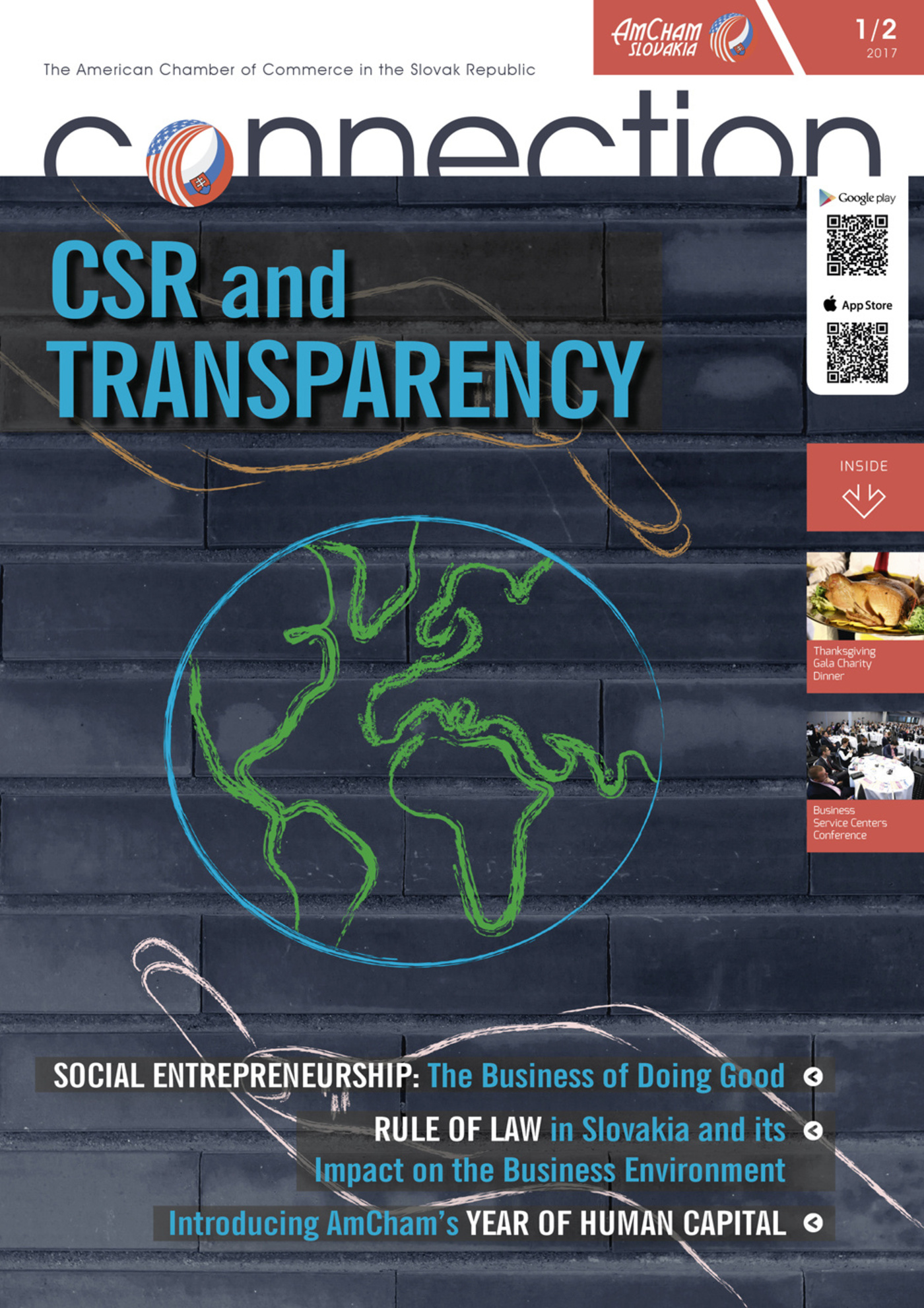The many successes give a positive picture, however, Slovakia also needs to address corruption, excessive bureaucracy, and the slow, unreliable judicial system. A clear vision has been presented by the authorities, and notable improvements have been made to the legal system. There are plans to continue on this path which should lead to a more satisfactory state of the rule of law.
Improvements to the Slovak legal system as regards transparency, the reduction of bureaucracy and a well-functioning judicial system have been slow to be implemented. Although the government has claimed the legal environment has significantly improved, the attitude of the general public, and the business community, remains almost unchanged. The diverse spectrum of political parties in government and the nominations of credible, trusted professionals, who have been appointed to head strategic ministries, have created a certain degree of optimism. Long-lasting problems with transparency, corruption, and business unfriendly laws are regularly commented on and criticized. One of the most significant initiatives as regards discussion and providing alternatives and suggestions on improvements is the Rule of Law Initiative, in which AmCham and other prominent professional groups are involved.
Slovakia took many significant steps towards improving the business climate in 2016. The new government adopted an action plan on the reinforcement of the rule of law. This document addresses the main problematic issues as regards the Slovak legal system and has the goal of adopting specific and practical measures. Notably, progressive legislation has been introduced in some areas, which represents a positive step towards an efficient legal system in the future.
Changes to the civil procedure code were an important landmark; three new procedural codes have been introduced, including reforms aimed at increasing the enforceability of law and legal certainty, providing for better court efficiency and the acceleration of court proceedings. The new Code of Contentious Civil Procedure introduced an innovative approach which expedites procedures and delegates specific agendas to specialized courts with the intention of delivering a more field-specific experience, consistent judgments, and increased legal certainty. It should expand the pressure on parties to be more active during proceedings and produce all relevant evidence to be considered by the court by strict deadlines. Other significant changes were made to limit obstructions as regards appeals on first instance decisions, also with the objective of avoiding delays.
As an important step in the prevention of corruption in public procurement, the new Act on the Registration of Partners of the Public Sector was adopted. It is expected to substantially increase transparency in public sector procurement, including municipalities and public institutions. Under the new law, providers of goods and services to the public sector are required to register and disclose final benefit users. The application process for company registration will either be handled by an attorney, a bank, a tax advisor or an auditor. They will also be responsible for the veracity and accuracy of the information provided to the register. In the event of false information, sanctions can be imposed not only on the company, but also against the entity providing the registration. The register will be maintained by the designated court with broad competence as regards the verification of provided information.
A solution which promises to address delays in judicial proceedings caused by overworked judges and obstacles in the execution process has recently come into force. In 2016, courts dealt with more than a million cases, many of which were execution proceedings. This situation takes time and resources away from other legal matters and almost every judge has several execution procedures to deal with at any one time. An extensive amendment to the Execution Code designates a specific court to handle all executions. The Ministry expects the revision will expedite proceedings and reinstate trust in the enforcement of executions. Another progressive solution introduced by this amendment is the introduction of compulsory electronic submission of execution forms. This formalized and automatic process will save the time and resources of courts. The amendment also addresses the much discussed issue of transparency as regards the selection of execution judicial officers administering executions by introducing the random selection. This measure will distribute an equal number of executions for each judicial execution officer in a particular region and prevent targeted selection of judicial execution officers by major claimants.
A new form of a company was introduced in the latest amendment to the Commercial Code – the simple joint-stock company. This is intended to create an optimal environment for startups and venture capital businesses. Among the major benefits will be the minimum initial capital of one euro, and the absence of limitations on stocks classes, including the issuance of employee shares. This will introduce higher flexibility regarding the purpose of a company and opportunities for new shareholders to enter at every stage of the business.
The establishment of criminal liability for legal entities in July 2016 introduced a concept previously unknown in Slovak law and was prepared at the recommendation of the OECD working group on Bribery in International Transactions. Under the new legislation, it is possible to sanction legal entities for around 50 crimes including bribery, indirect corruption, legalization of income from criminal activity and unlawful employment by managing directors, members of the board of directors or supervisory boards, or other authorized representatives. The law allows for companies to be wound up in the most serious cases of criminal activity. The legislation is intended to combat bribery and corruption.
There were improvements last year as regards the most significant problems, and we expect this trend to continue. We believe that the reformed legislative environment and increased enforceability of law, legal certainty and better court efficiency and transparency will lead to positive outcomes as regards a business-friendly environment in the upcoming year.
Katarína Bieliková, Senior Associate, WOLF THEISS
Michal Homza, Associate, WOLF THEISS



Follow us